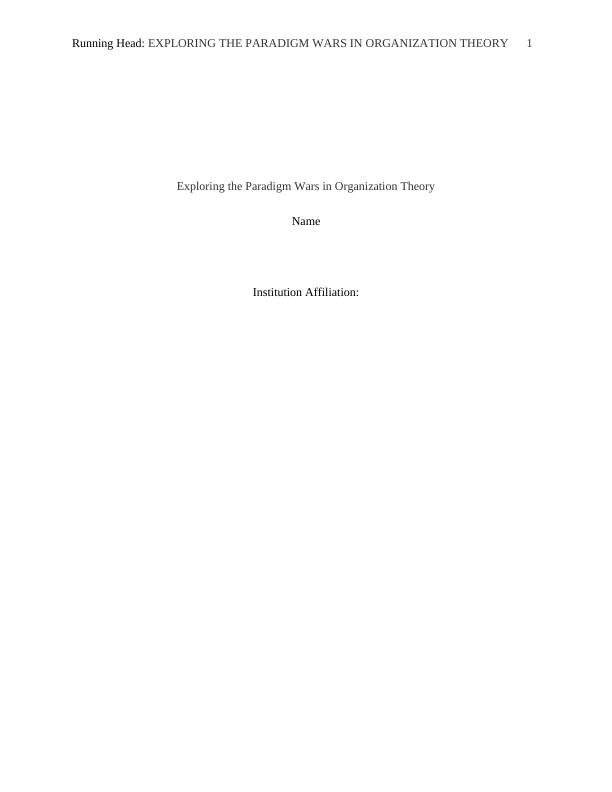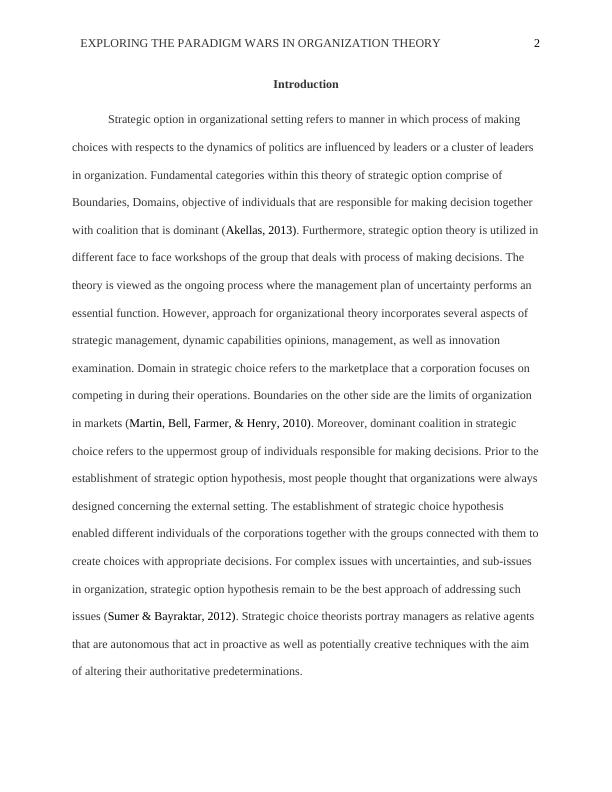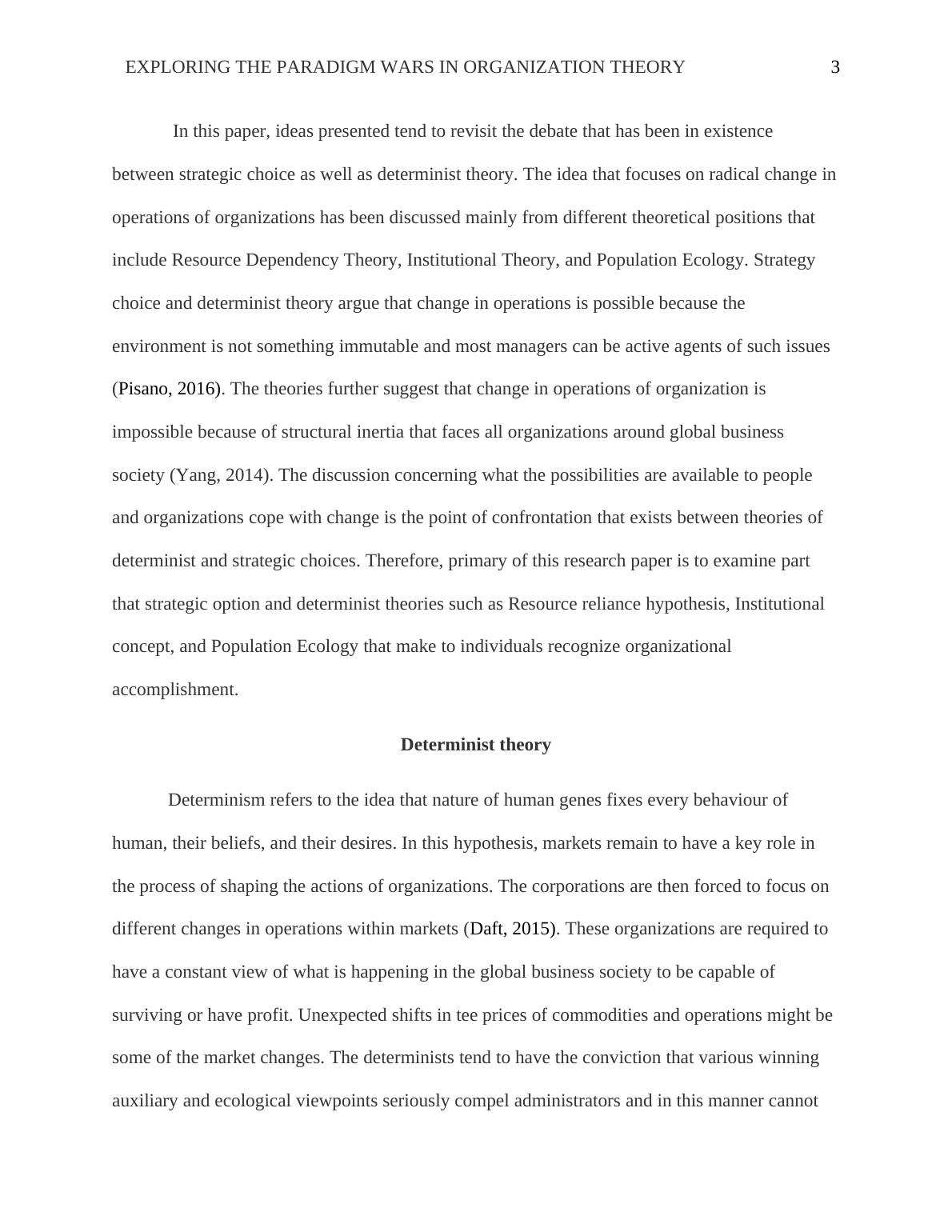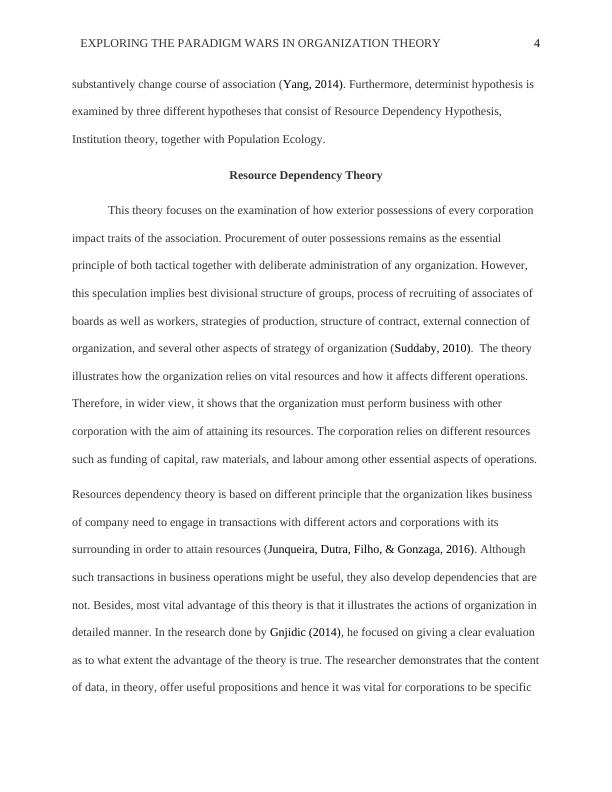Exploring the Paradigm Wars in Organization Theory
Submitted to La Trobe University
13 Pages3334 Words267 Views
Added on 2023-06-04
About This Document
This paper explores the debate between strategic choice and determinist theory in organization theory, focusing on Resource Dependency Theory, Institutional Theory, and Population Ecology. It examines how strategic options and determinist theories make individuals recognize organizational accomplishment.
Exploring the Paradigm Wars in Organization Theory
Submitted to La Trobe University
Added on 2023-06-04
ShareRelated Documents
End of preview
Want to access all the pages? Upload your documents or become a member.
Exploring the Paradigm Wars in Organizational Theory: Strategic Choice Vs Deterministic Theories
|11
|2830
|258
Strategic Choice and Deterministic Organizational Models
|11
|3114
|49
Organizational Development Management - Doc
|8
|2927
|49
Exploring the Paradigm Wars in Organization Theory
|9
|3205
|359
Organizational Theory: Exploring Paradigm Wars
|11
|2798
|77
MGT5MPT : The Concept of Paradigms
|13
|2972
|79




